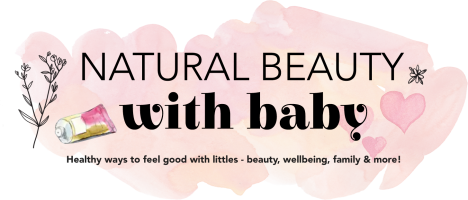“PTSD and positivity: how to find light in the darkest times” is a collaborative post.
You might’ve seen it mentioned in movies or TV shows, or perhaps you or someone close to you have been through PTSD. It’s a real, often overwhelming response to traumatic events and can impact anyone.
A car accident, a natural disaster, personal traumas, or any life-altering event can be a trigger. And just like its causes are varied, its impact on mental well-being is profound.
But here’s the hopeful part: there are ways to cope, heal, and find support. In this blog, we’re going to shed light on the many strategies and resources available.
So, without further ado, let’s get started!
Understanding PTSD
PTSD is a mental health condition that can develop after someone experiences a traumatic or terrifying event. Now, this isn’t just about feeling shaken for a day or two. People with PTSD might have nightmares or even feel like they’re reliving the trauma. Some common symptoms include sudden bouts of anger, feeling on edge, or avoiding places and people that remind them of the trauma.
Medical treatment options
Navigating through PTSD is by no means a simple journey. It’s different for every person, but there are common threads of hope and healing. One of the significant avenues for relief comes from medication and comprehensive treatment plans.
Now, the financial aspect of treatment can’t be ignored. Treatments can be expensive, and not everyone can bear the costs easily. But there’s some hope. If you have developed PTSD due to traumatic events like the 9/11 attacks, there’s potential relief available.
In such situations, compensation under the ZADROGA Compensation Act can be sought for the heavy expenses that come with PTSD treatment. For this, specialised 9/11 Lawyers can provide essential legal assistance. They can help you navigate through the process, including filing claims and helping you achieve maximum compensation.
Building a support system
When you are going through PTSD, sometimes, you might feel like you’re alone. But having a support system is your lifeboat. They might not completely understand what you’re going through, but they’re there, offering a listening ear, a shoulder, or just silent company. And this connection can play a massive role in your recovery.
So, how do you gather this fleet of supportive souls? Well, start with your inner circle. It can be family, close friends, or anyone you trust. Alternatively, you can consider joining support groups, where you meet others going through the same journey.
Self-care strategies
Living with PTSD can sometimes feel like you’re on a rollercoaster that just won’t stop. One minute, you’re up; the next, you’re down. Finding some solid ground might seem tough, but that’s where self-care comes into play.
But why is self-care so important for PTSD?
It gives you the time, space, and tools to find calm amidst the chaos. Practicing self-care can provide comfort, help manage symptoms, and play a vital role in the journey of healing and recovery from PTSD.
Some recommended self-care practices
Mindfulness – It can be as simple as focusing on your breath or paying close attention to the sights and sounds around you. By anchoring yourself to the present, you can steer clear of distressing memories or anxieties about the future.
Yoga – Beyond the cool poses and flexibility, yoga is deeply rooted in connecting the mind and body. It can help in releasing tension, grounding oneself, and cultivating a sense of inner peace.
These self-care strategies are a part of the comprehensive treatment plan.
Seeking professional help
Navigating through PTSD can be tough, but professionals like psychologists, therapists, and psychiatrists are the guiding stars in the dark nights of PTSD. They’re trained to understand your thoughts and provide strategies to deal with them.
Now, therapy isn’t a one-size-fits-all glove. You may benefit from Cognitive Behavioural Therapy (CBT), which helps you become aware of negative thinking and teaches you ways to change these thought patterns.
On the other hand, you never know if you get help from Eye Movement Desensitisation and Reprocessing (EMDR). It is a reset button for your brain’s traumatic memories. It’s known to work wonders for some people by changing how these memories are stored, making them less distressing.
If you’re even thinking about seeking help, give yourself a pat on the back. It’s a big step, and it’s super brave.
Final thoughts on PTSD and positivity
It’s essential to remember that while PTSD can indeed cast long shadows in your life, the human spirit is incredibly resilient. No matter how dark things might seem, there’s always a flicker of light waiting to be found, and sometimes, it’s merely about changing your perspective or reaching out for the right support. And remember, positivity isn’t about denying the pain or the challenges. Instead, it’s about recognising them and believing in the possibility of brighter days ahead.





